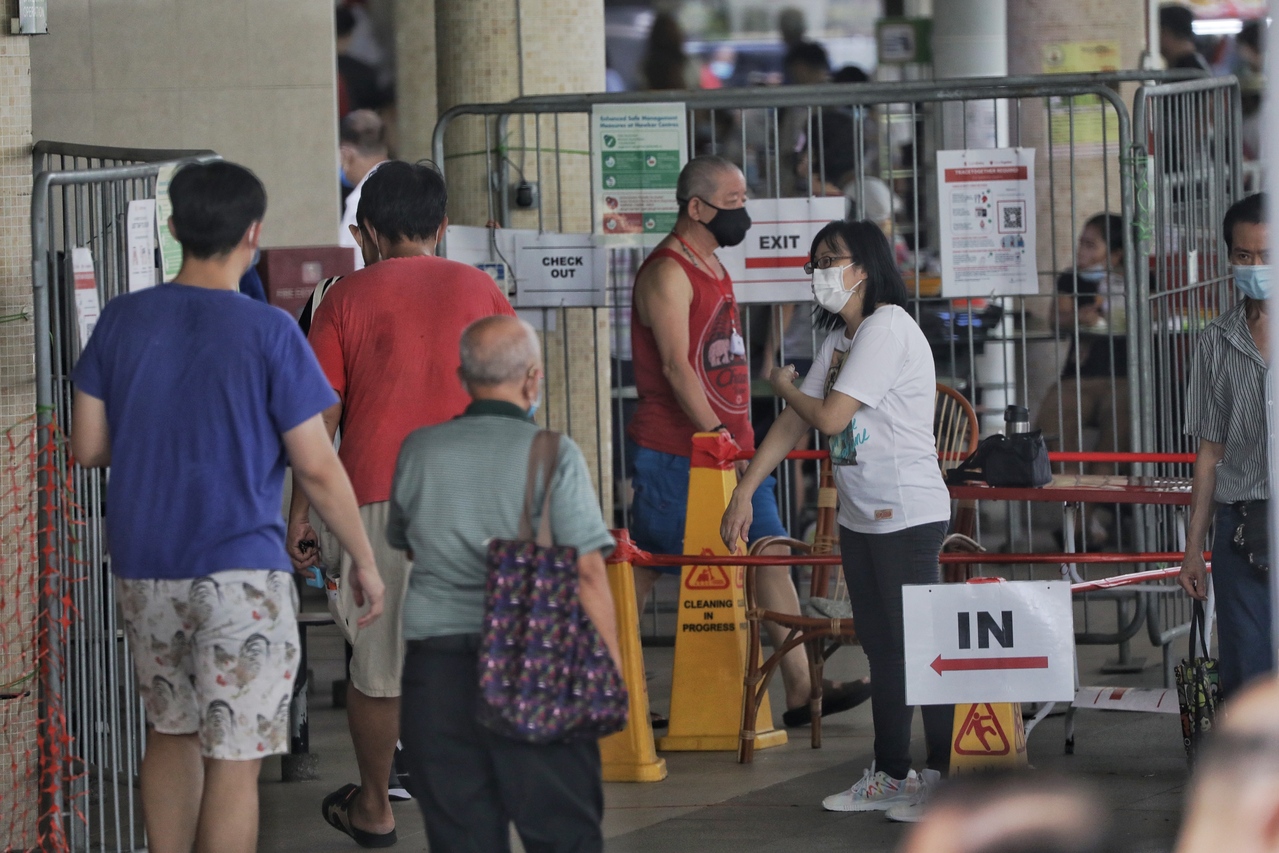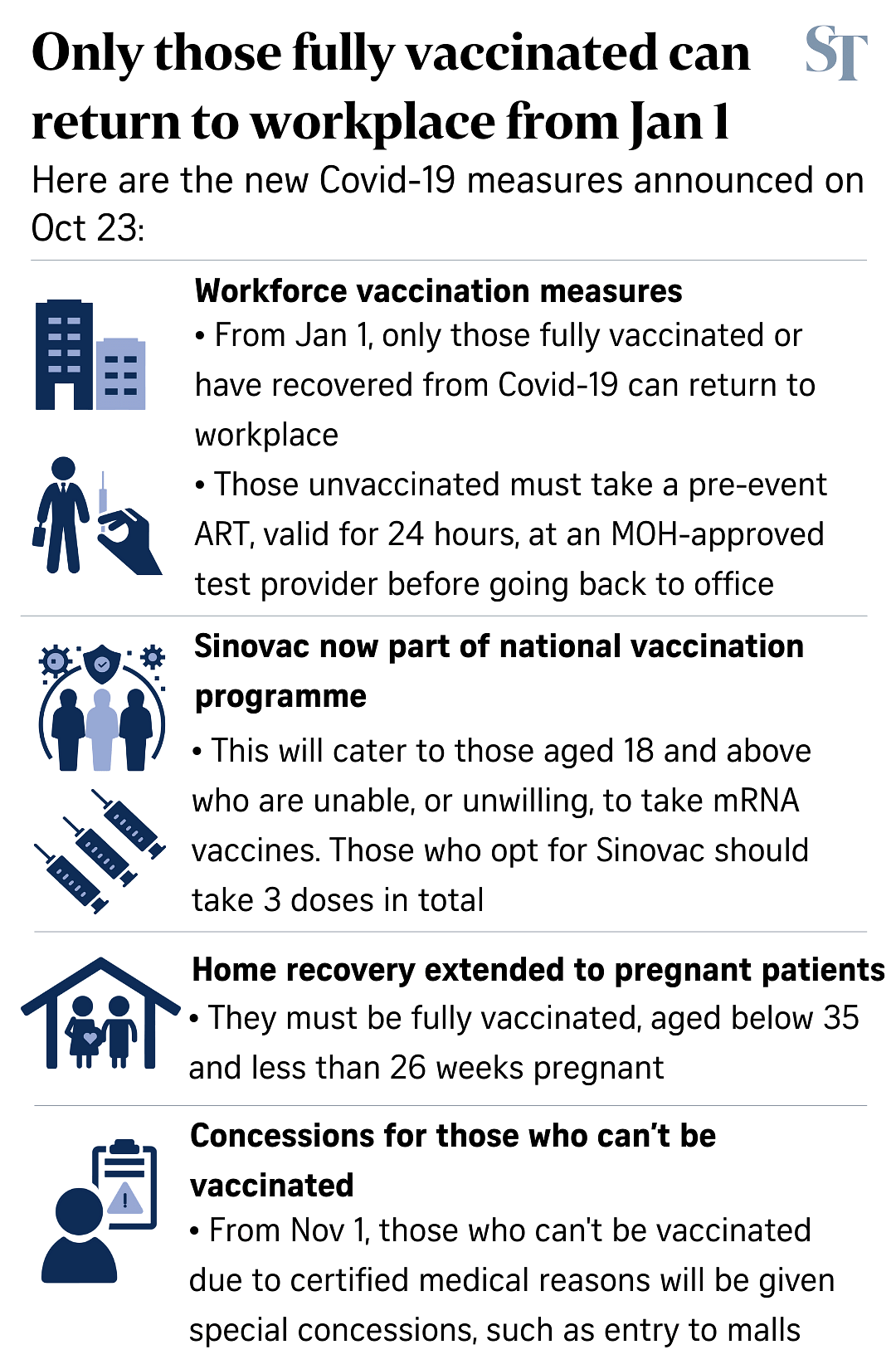S'pore's 'middle path' approach has prevented Covid-19 deaths while still making progress: Ong Ye Kung
Sign up now: Get ST's newsletters delivered to your inbox

Singapore has chosen a unique approach unlike most countries, which opted to either eradicate or live with the coronavirus.
ST PHOTO: KEVIN LIM
Follow topic:
SINGAPORE - Countries that are living normally today had paid a big price early on, with big waves of Covid-19 infections and far higher death rates as a result, said Health Minister Ong Ye Kung on Saturday (Oct 23).
He reiterated that Singapore has chosen a unique approach unlike most countries, which opted to either eradicate or live with the coronavirus.
Singapore did both - adopting an eradication strategy in 2020 and a large part of 2021 when its population was not protected by vaccines. After a large majority of the population was vaccinated, it moved step-by-step toward living with Covid-19.
This has protected the vulnerable and prevented hospitals from being overwhelmed, and the country is making progress even as it battles the current wave of transmissions, he said.
"We see many countries, now living life quite normally, with quite a bit of envy," Mr Ong said at a press conference.
"They took a living with Covid-19 approach from the start... We need to remember that today, when they live normally with Covid-19, they paid a big price."
Countries such as the United States, Britain and Italy saw around 2,000 coronavirus deaths per million population.
Even Denmark, with around the same number of people as Singapore, has around 460 deaths per million population.
In contrast, Singapore has seen 294 deaths as at Friday. This works out to about 50 deaths per million population.
"We have so far given our people very strong protection compared to many other countries in the world," Mr Ong added.
"But still, we mourn the loss of every life with their families and their loved ones, and we cannot let up the fight."
Elaborating on Singapore's "middle ground" approach, Finance Minister Lawrence Wong stressed that the Republic is trying very hard not to veer to either extreme.
This means not keeping measures static, but also not opening up to the extent where the healthcare system is at risk of being overwhelmed, he said.
Instead, the Government's approach will be to open up in settings where risks are deemed to be more acceptable, after discussions with experts.
"It will not be perfect, but by and large, where we assess the risks to be not as high, to be within acceptable limits, then we will want to move first, as we have been doing for travel."
Singapore's Covid-19 restrictions are in place for an additional month until Nov 21, although the Government plans to review the extended measures at the two-week mark and adjust them based on the community situation.

At Saturday's press conference, the multi-ministerial task force tackling the pandemic was asked about the possibility of restrictions being eased ahead of Deepavali on Nov 4.
Mr Wong replied that this is not the first time that the country is celebrating a festival in the middle of the pandemic.
If the weekly infection growth rate drops below one and the hospital situation remains stable, the task force plans to ease measures in three areas - school activities, team sports and family dining.
The weekly infection growth rate is the ratio of cases in the past week over the week before.
"Beyond that, I know there would be a further desire for other things," he said.
"But I think we will have to consider these all separately and carefully, looking at the overall infection situation."


